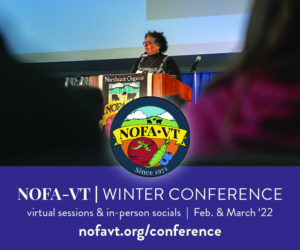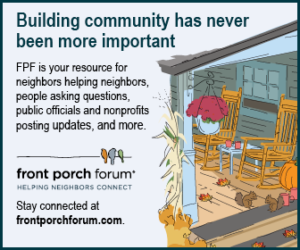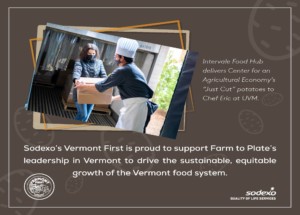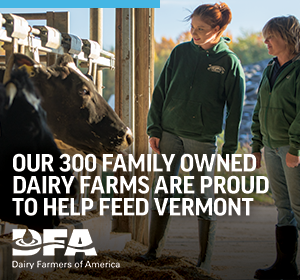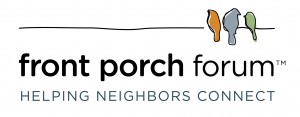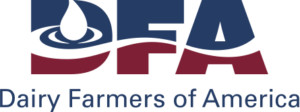2021 Farm to Plate Network Gathering
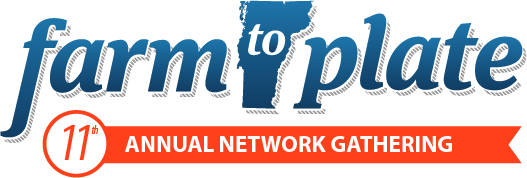
Welcome to the 11th Annual Farm to Plate Network Gathering
During this important Network Gathering we kicked off implementation of the Vermont Agriculture and Food System Strategic Plan 2021-2030! Over two days, 270+ attendees explored inspiring efforts across the state that are bringing the 2021-2030 Strategic Plan to life, received practical trainings and topic deep-dives to help organizations, farms, and food businesses, witnessed the unveiling of the next iteration of the Farm to Plate Network, and learned how we can work collectively to implement strategic priorities over the next decade.
We would like to give huge thanks to Farm to Plate Sponsors. Your partnership enabled so many things, including scholarships for Gathering attendees and being able to put on this important event. THANK YOU!
Silent Auction to Benefit Abenaki Helping Abenaki
We couldn’t go another year without a cheese table! In the spirit of adding an element of fun to our virtual gathering this year and in lieu of another year without an in-person cheese table, we received generous donations from our Farm to Plate sponsors to create a silent auction aka virtual cheese table.
All proceeds for the silent auction went to Abenaki Helping Abenaki Inc., a 501(c)3 Non-Profit created by the Nulhegan Band of the Coosuk Abenaki, whose programs include the Nulhegan Food Security Programs, Abenaki Land Link Project, and Abenaki Bison Project.
$551 was raised at this year’s silent auction/virtual cheese table.
Thursday, November 18, 2021
Day One Agenda
Opening Remarks
Opening Remarks: Jake Claro, Farm to Plate Director, Vermont Sustainable Jobs Fund
Opening Remarks
Plenary Panel
Our plenary panel features four examples that demonstrate the power of working together in a networked way, covering the Plan’s four goal categories:
Sustainable Economic Development
Environmental Sustainability
Healthy Local Food for All Vermonters
Racial Equity
They will give us inspiration as we move into a new decade of implementing Vermont’s Food System Plan together.
Panelists:
- Advancing Racial Equity in Vermont’s Food System:
Megan Brakely | Agriculture Organizer, Vermont Releaf Collective - State of Soil Health and Shifting to Climate-Informed Agriculture:
Alissa White | Postdoctoral Research Assistant, Gund Institute for Environment
Stephen Leslie | Co-owner, Cedar Mountain Farm & Cobb Hill Cheese - Building Frameworks to Support Food Access in Health Care:
Helen Labun | Food Access Manager, Bi-State Primary Care Association - Regenerative Economic Development:
Kyle Philipp | CEO & Co-Founder, Regenerative Food Network
Table Talk
Table Talk
Description: We will spend time in smaller groups saying hello and sharing reflections, thoughts, and ideas that came about during the plenary panel.
Room 1: Sustainable Economic Development
Room 2: Environmental Sustainability
Room 3: food Access for All- Note: video was not useable due to technical issues.
Room 4: Racial Equality
Room 5: New Network Structure
Table Talk: Sustainable Economic Development
Table Talk: Environmental Sustainability
Table Talk: Racial Equity
Table Talk: New Farm to Plate Network Structure
Breakout Session- Understanding Your Audience: Translating Consumer Insights into Action for Your Organization or Business
Understanding Your Audience: Translating Consumer Insights into Action for Your Organization or Business
Description: Happy customers are the key to any successful business, but how do you get there? In this interactive session, we will cover how to gather the information you need to successfully communicate your value proposition to your audience.
Facilitator: Becca Brown, Founder and CEO, Upper Case Industries
Breakout Session- Land Access Collaborations
Land Access Collaborations
Description: There is a growing movement of people developing land access models based on collaborative ownership, access, and stewardship. The model of simple farmland ownership by a single family is not possible for many farmers, and not desirable for some. If we do not explore and implement a range of approaches, including collaborative access, we risk losing farming opportunities for new entrepreneurs and existing farmers, agricultural land, and the opportunity to redress historical racial injustices related to land. This session will feature a nascent farmer-led, community-driven initiative in Vermont, the White River Land Collaborative, and create a conversation among attendees regarding their work: What collaborative and creative models are you building? How is it working? How can we work together to move these models forward?
Facilitator: Francine Miller, Senior Staff Attorney and Adjunct Professor, Center for Agriculture and Food Systems
Panelists: Shona Sanford-Long, Flying Dog Farm and White River Land Collaborative; Sarah Danly, White River Land Collaborative
Breakout Session- Revisioning the Vermont Farm Show and Agricultural fairs
Revisioning the Vermont Farm Show and Agricultural Fairs
Description: Given the changing nature of agriculture in Vermont, this session will explore how our Agricultural Fairs and Farm Show can continue to showcase, promote and celebrate farming in Vermont. These events provide an opportunity to highlight Vermont’s agricultural community and connect the public to their food, especially as the population becomes more removed from farms and how food is produced. This deep dive session will generate ideas for how Vermont’s Fairs and Farm Show can continue to focus on agriculture at these events.
Facilitators: Tim Shea, President, VT State Fairs Association; Glenn Rogers, Secretary, VT Farm Show Board; Dave Martin, President, VT Farm Show Board; and other representatives from the VT State Fairs Association
Breakout Session- Creating a Food Security Plan
Creating a Food Security Plan
Description: The Farm to Plate priority strategy #24 is to, “Create a Vermont food security plan, centered around a thriving food system and inspired by community-based responses to food insecurity and disruptive events.” This session will begin with a discussion of the disruptions caused by the COVID-19 pandemic and the community-based, ag-centered responses that occurred in Vermont. We will celebrate successes, provide updates, share knowledge. Then we’ll lead a structured conversation on what the food security plan’s process and contents should look like. Please join us.
Facilitators: Becka Warren, Food Security Project Manager, Vermont Sustainable Jobs Fund; and Katy Davis, Community Health Initiatives Director, Hunger Free Vermont; Genna Williams, The Vermont Food Bank
Breakout Session- How Farms and the Food System Can Benefit from the Vermont Way Foods Brand
How Farms and the Food System Can Benefit from the Vermont Way food Brand
Description: A Brand can be a powerful tool to build market acceptance, drive sales, and improve margins. The Vermont Food Hub Collaborative stepped up to meet this need and developed Vermont Way Foods™. This session will provide a brief introduction to the creation of the Vermont Way brand, including how various Farm to Plate stakeholders and funders contributed to this effort. Attendees can expect to learn how they might benefit from the brand and discuss future collaborations.
Facilitator: Lawrence Miller, Independent Consultant, Five Vine Consulting, LLC
Panelists: Catherine Cusack, Green Mountain Farm to School; Carol Degener, Brand Inflection, LLC; Matt Landi, Vermont Way Foods; Jon Ramsay, Center for an Agricultural Economy; Gaye Symington, High Meadows Fund
s Director, Hunger Free Vermont; Genna Williams, The Vermont Food Bank
Breakout Session- Strengthening Systems and Partnerships for mental Health and Well-Being on Farms
Strengthening Systems and Partnerships for Mental Health and Well-Being on Farms
Description: The most important aspects of our farm and food systems are the people. The mental health and well-being of farmers has come into sharp focus recently. This session will explore ideas among partners to create improved resource coordination for farmers, their families, and farmworkers. This session will review the history and future of the Farm First program and highlight current collaborative partners on the panel. An interactive discussion will be facilitated among all session participants, focusing on ways to improve farmers’ access to critical resources for mental health and wellbeing. Health care workers, lenders, extension agents, technical assistance providers, government agency employees, and business advisers are encouraged to attend as together we raise awareness, remove stigma-related barriers, bring equitable access to the marginalized and improve access to services.
Facilitator: Leanne Porter, Farm First
Panelists: Karen Crowley, NE-FRSAN; Naomi Wolcott-Causland, UVM Migrant Health; Diane Bothfeld, VAAFM; Kevin Channell, Farm First; Valerie Woodhouse, National Young Farmers Coalition – Advisory Board
Breakout Session- Vermont's Climate Action Plan: What is it, and What Does it Mean for the Food System
Vermont’s Climate Action Plan: What is it, and What Does it Mean for the Food System
Description: The Climate Action Plan is a roadmap to get Vermont to net-zero by 2050. In this session, we’ll explore the ways agriculture and the food system impact Vermont’s greenhouse gas emissions, and the changes needed to meet the ambitious goals of the Global Warming Solutions Act. As well as the recommendations from the Vermont Climate Council for how to meet those goals while keeping equity, adaptation, and resilience in mind. Bring your best ideas to the table and discuss how the Climate Action Plan can synergize with the Farm to Plate vision.
Facilitator: Jake Claro, Farm to Plate Director, Vermont Sustainable Jobs Fund
Panelists: Lauren Oates, The Nature Conservancy; Alissa White, University of Vermont; Abbie Corse, Corse Dairy Farm; Ryan Patch, VAAFM; Alex DePillis, VAAFM
Breakout Session- Introducing Regeneration Corps
Introducing Regeneration Corps
Description: Regeneration Corps is a learning and skill-building opportunity for high-school-aged students to get out of the classroom and onto farms, community garden spaces, and other agricultural sites while studying the most pressing issues of our time and bolstering our local food system. Our collective team endeavors to teach Vermont’s young people about the intersections of regenerative agriculture, racial justice, and climate change – all for academic credit through vehicles such as Vermont’s Flexible Pathways program and Community Based Learning program. We’re here to get our hands dirty, and to connect with and learn from folks in the community who work in agriculture and social justice! We hope you’ll join us for this session to learn more about our mission and work.
Facilitators: Cat Buxton, Educator, Grow More Waste Less; Michelle Eddleman McCormick, Regeneration Corp; Karen Ganey, Change the World Kid; Henry Harris, Center for Grassroots Organizing
Closing Remarks and Reflections
Closing Remarks and Reflections
Facilitator: Jake Claro, Farm to Plate Director, Vermont Sustainable Jobs Fund
Vermont Wild Kitchen
Vermont Wild Kitchen, Rural Vermont
Description: Join us for Happy Hour in the Vermont Wild Kitchen! Chef and forager Pete Bayliss and Farm to Plate’s Sarah Danly join Shane Rogers to concoct some wild cocktails and hors d’oeuvres. This will be a great way to wind down a full and fulfilling day.
Friday, November 19, 2021
Day Two Agenda
Welcome Back, Opening Remarks, Share Reflections from Day 1
Welcome Back, Opening Remarks, Share Reflections from Day 1
Facilitator: Jake Claro, Farm to Plate Director, Vermont Sustainable Jobs Fund
Breakout Session- A Statewide Marketing Plan for Agritourism
A Statewide Marketing Plan for Agritourism
Description: Vermont agritourism stakeholders play important roles in marketing to the public. Partners need common messaging themes and strategies around a shared vision and values to strengthen network relationships. They also need communication that sustains collaborative action. This session will discuss Vermont Fresh Network’s grant-funded work in developing a statewide Vermont Agritourism marketing plan to support farmers’ agritourism efforts and ensure that they translate into true economic gains for Vermont farms and rural communities. We will give an update on the project status, will share common themes found through stakeholder conversations, and will invite attendees to weigh in with their thoughts on future steps to connect ideas, resources, and leadership in support of collaborations between statewide partners and stakeholders.
Facilitators: Tara Pereira, Executive Director, Vermont Fresh Network
Breakout Session- Stakeholder Engagement, Organizing and Coalition Building for Policy Workshop
Stakeholder Engagement, Organizing and Coalition Building for Policy Workshop
Description: Advocacy for scale-appropriate regulations is critical to the advancement of the Strategic Agricultural Plan and a more equitable, resilient, and accessible food web in Vermont. Staff at Rural Vermont will discuss at least three recent and long-term campaigns related to issues such as Raw Milk, Cannabis, Healthcare, Compost Foraging for Poultry / the Universal Recycling Law, and On-Farm Slaughter to explore at a more granular level the successes, challenges, failures, and opportunities along the way of collaboratively transforming ideas and experiences of community members into real-world outcomes. We’ll consider some of this recent work in relationship to the Strategic Plan, as well as discuss and generate ideas for future efforts and how they may be accomplished.
Facilitators: Graham Unangst-Rufenacht, Rural Vermont and Farm to Plate Farmland Access and Stewardship WG Chair; Caroline Gordon, Rural Vermont; Mollie Wills, Rural Vermont
Breakout Session- Creative Approaches to Accessing Capital for Farm and Food Businesses
Creative Approaches to Accessing Capital for farm and Food Businesses
Description: This will be a follow-up session to a Farm Viability Conference presentation, where we will explore different funding mechanisms and issues surrounding access to capital, credit, and general business resources among beginning and/or underserved members of our farm and food business communities. We will provide tools, resources, and subsequent findings from the previous session amongst our greater network of farm business advisors.
Facilitators: Corey Hennessey, Business Advisor, Vermont Community Loan Fund; Emma Enoch, Vermont Community Loan Fund
Breakout Session- Farm to Institution: Transformative Efforts
Farm to Institution: Transformative Efforts
Description: This session will shine a light on Vermont’s cross-sector Farm to Institution transformative efforts and change-makers. We will catch the audience up on many new developments, twists, and turns that are unfolding in efforts to bring healthy, sustainably produced, local food to Vermont schools, colleges, hospitals, early childcare centers, and prisons. Sector leaders will focus on current labor and supply chain stressors and reveal some common, and some unique challenges and opportunities for each sector. Together we’ll call out and dive into some of the strategies that could be meaningful levers of change, and what is needed to put them into place.
Facilitator: Peter Allison, Executive Director, Farm to Institution New England
Panelists: Trevor Lowell, VAAFM; Helen Rortvedt, NOFA-VT; Cynthia Green, Shelburne Farms (ECE); Bryan Mitofsky, VT DOC; Annie Rowell, Sodexo/UVM; Tenley Burlingame, UVM Medical Center; Leah Pryor, Executive Chef, UVM Medical Center
Breakout Session- The New Vision for Vermont Technical College's Agricultural Programs
The New Vision for Vermont Technical College’s Agricultural Programs
Description: The Vision for VT Tech’s New Center for Agriculture & Food Entrepreneurship: Learn about the process and final set of recommendations to transform VT Tech’s Agriculture and Food System program which involved over 40 stakeholders, over 12 months. The group explored the strengths, challenges, and opportunities for agricultural and food system education programming at Vermont Tech so that it can continue to thrive during these uncertain times in higher education. Join this session to learn more about the series of recommendations that are now being implemented, including a change in enterprises at the VT Tech Farm, a robust internship program, and a revised Associates degree with 2 concentrations.
Facilitators: Ellen Kahler, Executive Director, Vermont Sustainable Jobs Fund
Panelists: Pat Moulton, President of Vermont Technical College; Molly Willard, Forestry Program and The Institute for Applied Agriculture and Food Systems, CEWD; Regina Beidler, Member Program Specialist at Organic Valley
Local Food Count Reveal
Local Food Count Reveal
Facilitator: Jake Claro, Farm to Plate Director, Vermont Sustainable Jobs Fund
Dairy Plenary Panel and Closing Remarks
Dairy Plenary Panel
Description: This Plenary will focus on the Vermont Dairy Farmers Voices Project: The project gives voice to a broad range of dairy farm experience – from small to large operations, conventional to organic – on important issues such as the value and dignity of dairy farming, leadership, public perception and relationships, the potential for environmental alliances, and power dynamics both within the dairy and between dairy and the public. The panel’s exploration of farmer voices on these topics will offer observations and actions for all of us that embrace a more positive and mutually respectful way to support Vermont dairy farmers.
Facilitators: Gil Livingston, Former President, Vermont Land Trust
Panelists: Abbie Corse, Co-Owner, The Corse Farm Dairy; John Roberts, Director, Champlain Valley Farmer Coalition; Ashlyn Bristle, Rebop Farm; Joanna Lidback, The Farm at Wheeler Mountain; Ginny McGinn, Executive Director of the Center for Whole Communities
Thank You to Our Sponsors
Thank you to our many Farm to Plate Sponsors for making farmer scholarships a possibility for this event.
Dairy Level Sponsors:
Maple Level Sponsors:
Apple Level Sponsors:
Butternut Mountain Farm
Cabot Creamery Cooperative
Cellars at Jasper Hill
Chelsea Green Publishing
City Market
Clean Yield Asset Management
Efficiency Vermont
Farmers To You
Grow Compost of Vermont
Lamoille Economic Development Corporation
NOFA-VT
Organic Valley
Shelburne Farms
Vermont Agricultural Credit Corporation Loan Program
Vermont Land Trust
Yankee Farm Credit
Blueberry Level Sponsors:
Hunger Mountain Coop
Intervale Center
Pete’s Greens
Snug Valley Farm
Vermont Housing and Conservation Board Farm & Forest Viability Program
Seedling Level Sponsor:
Interested in becoming Vermont Farm to Plate sponsor? Click to learn more.
Vermont’s Food System
Vermont’s farm to plate food system plan is the most comprehensive in the country and the only state that has complete government engagement. Vermont’s food system generates more than $11.3 billion in economic output and supports more than 64,000 jobs and 11,500 businesses. From 2007 to 2017, Vermont food system economic output expanded 48%, from $7.5 to $11.3 billion. From 2009 to 2019, net new food system employment increased by 6,560 jobs (11.3%).
Our Role
The Vermont Sustainable Jobs Fund serves as the administrator and backbone organization to the Farm to Plate Network and executes the analysis and goal tracking of the Farm to Plate Strategic Plan implementation. As a backbone organization, we guide vision and strategy; support aligned activities and facilitate dialogue across the network; establish shared measurement practices; mobilize funding; manage communication; provide professional development and leadership training opportunities; build public will; and coordinate community outreach.
More than 350 members of the Farm to Plate Network are working together to create a viable, sustainable, and resilient food system which produces and distributes our food and generates positive economic, environmental, and social impact in Vermont’s economy.



